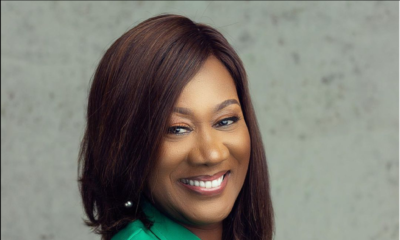Features
Money Matters With Nimi: Are Your Life and Properties Insured?

The fundamental premise of insurance is that you should get it before you need it. No one knows what might happen. Too many people assume that bad things won’t happen to them and ignore the need for insurance until a major mishap or setback occurs, it is then that the impact of inadequate insurance coverage becomes glaring. No matter how meticulous you are with your finances, failure to purchase adequate insurance can impair your financial future and put you or your loved ones in a desperate situation.
Life, home, household, health, and motor vehicle insurance are just a few of the policies that are available for consumers. Consider your car, your home, and other personal possessions. If these valuables were seriously damaged in an accident or some of your most valuable possessions were stolen, could you afford to replace them? Some types of insurance are compulsory for individuals, such as public building insurance and third party cover in respect of motor vehicles. However, for most classes of insurance, it is for you to decide how much cover you need.
Dele was reversing out of a crowded parking lot at a shopping mall. He misjudged the distance between his Toyota Prado and the Toyota Corolla parked directly behind him and backed into it. The other car suffered damage including broken headlights. Sadly, Dele’s car suffered damage as well; his tail-lights were smashed and the back of the car got badly damaged.
Dele has only Third Party Insurance, this means that the insurance company will cover the costs of the damage to the other car, but he will have to dip into his savings to fix his own car as it will not be covered.
Is your home insured?
If you own a home, you need homeowners insurance. If you rent your place, you need renters insurance. Can you afford to replace your home? Ideally, your home should be insured for what it would cost to replace or rebuild if it were destroyed in a fire or other disaster. If you haven’t upgraded your home insurance policy in the past few years, you run the risk of having seriously inadequate coverage as your policy may not have kept up with the rising building or replacement costs. Your policy also provides cover and shields you from liability if someone else gets injured on your property.
Do you have an educational policy?
As responsible parents, one of our priorities is to give our children the best start in life, and a sound and qualitative education is one way to do this. As the cost of higher education increases significantly each year, it could put a financial strain on your budget. Many parents thus start planning and preparing for their child’s college education in the early years of the child’s life. One method of doing this is to take out an educational plan, which is basically an insurance policy. Various policies are on offer, so closely scrutinize the terms, as having an educational plan may not be enough to cover all the costs when the time comes for your child to go to college. It could, however, go some way to offset some of the significant costs.
Does your family have medical insurance in place?
You are your greatest asset. This makes health insurance the single most important type of insurance. How healthy are you? If you or anyone in your family were to ever become gravely ill, can you afford the best medical treatment available? If you are generally healthy, it may be a good idea to select a policy with the highest deductible you can afford. A deductible is the part of the expenses that you are required to pay before your insurer covers your health costs. This is to discourage the insured from claiming the smallest bill. You may pay for routine medical care costs but will have peace of mind knowing that if you ever become seriously ill, your insurance will kick in.
Most medical insurance policies don’t include dental insurance. Dental bills can be very expensive from bi-annual checkups, fillings, extractions, root canals, and so on, the premium for dental care is only a small price to pay when compared with actual dental treatment.
Is your life insured?
As morbid as it sounds, can your loved ones afford to lose you? If you were to die, could your family or dependants pay for the funeral, organise the family finances, service any outstanding debt, meet family goals, and continue in their current standard of living? Or, would they face extreme hardship in the event of the death of their primary breadwinner? The main objective of life insurance is to replace the income that would be lost should the policyholder die.
Strike, Riot, and Civil Commotion
The destruction, arson, and looting during October’s civil unrest highlighted a type of insurance that most had never heard of. Strike, Riot, and Civil Commotion (SRCC) Insurance speaks for itself. It must be requested as an extension to a comprehensive policy for your vehicles, home, or office.
Insurance offers you cover in return for a monthly, quarterly, or annual premium. It is easy to overlook these payments; don’t lose your insurance by skipping your premiums. It sounds obvious, but you must read your policy carefully to be sure that it provides the cover you need and you must be fully aware of what is excluded.
At some point in time, you will probably need to call upon some form of insurance. While insurance will not eliminate the risk of loss or damage to property, injury, illness or death, it will relieve the insured of the financial losses these risks bring. The cost of coverage of all these scenarios is far lower than if you had to service them if they do indeed arise. If you don’t have the necessary insurance cover, do make this one of your financial priorities as we approach a new year. Better safe than sorry.
***
Photo Credit: Dreamstime



















